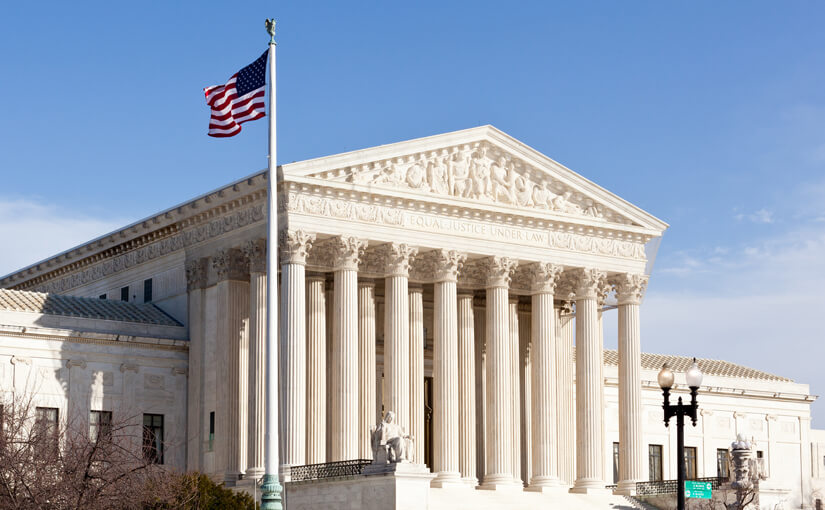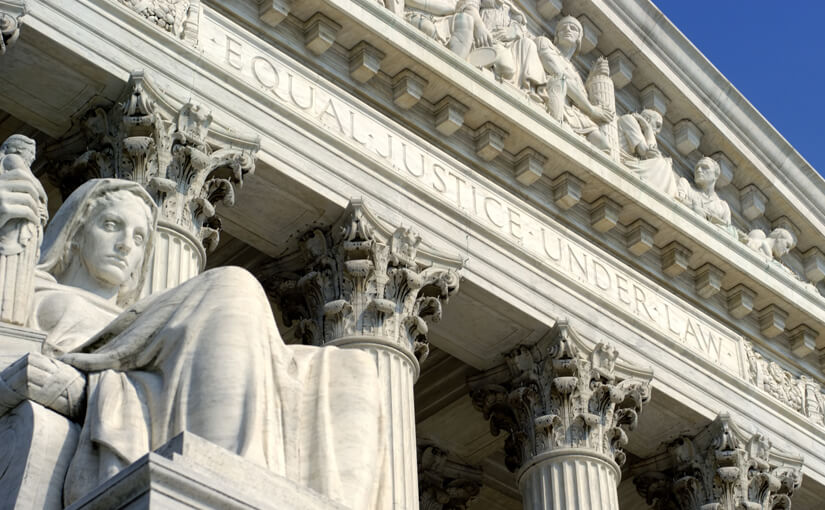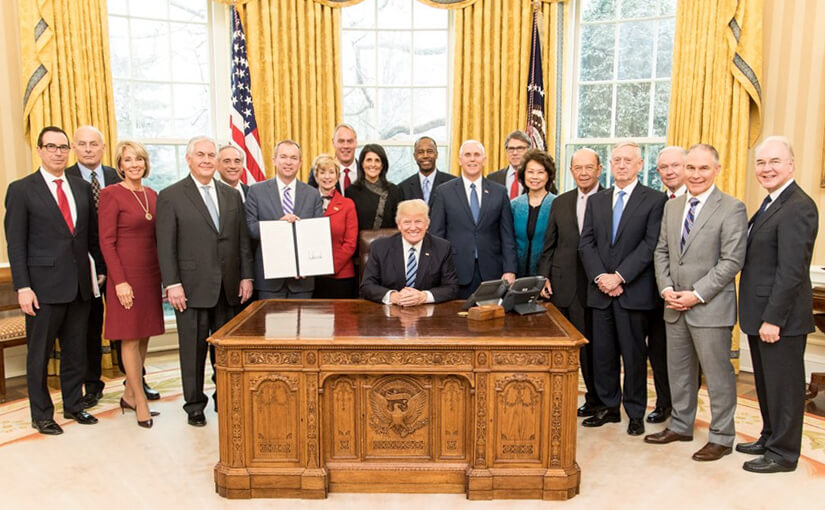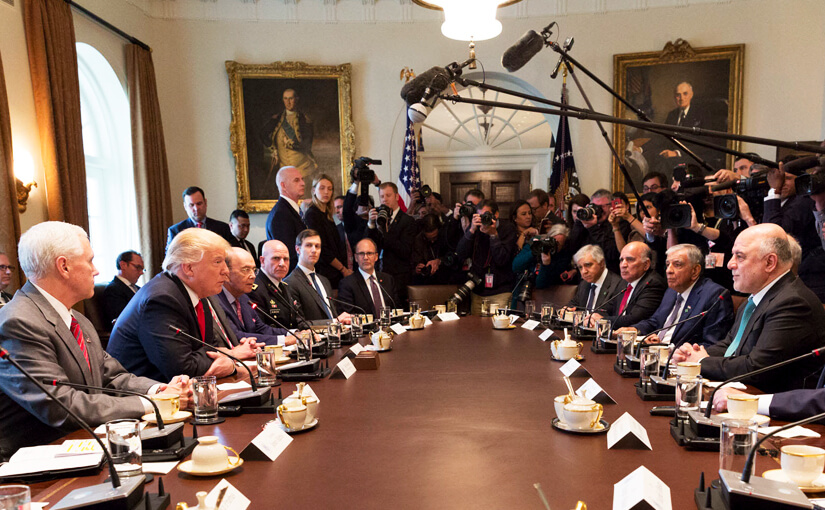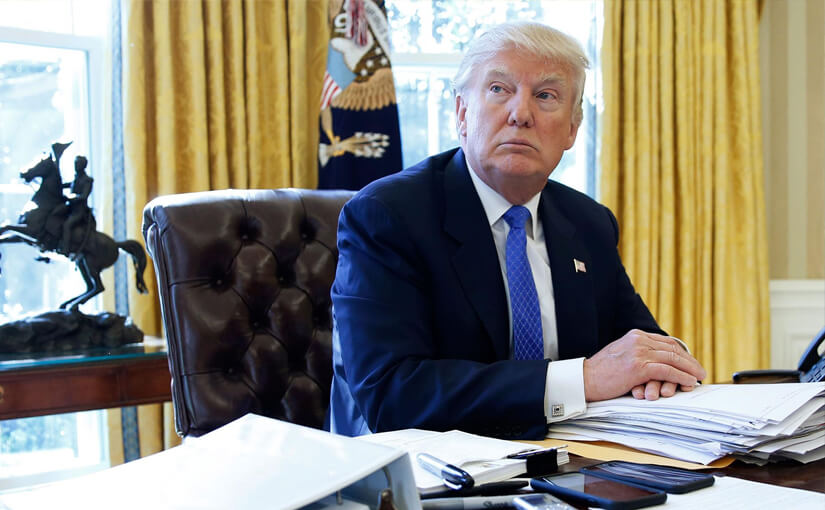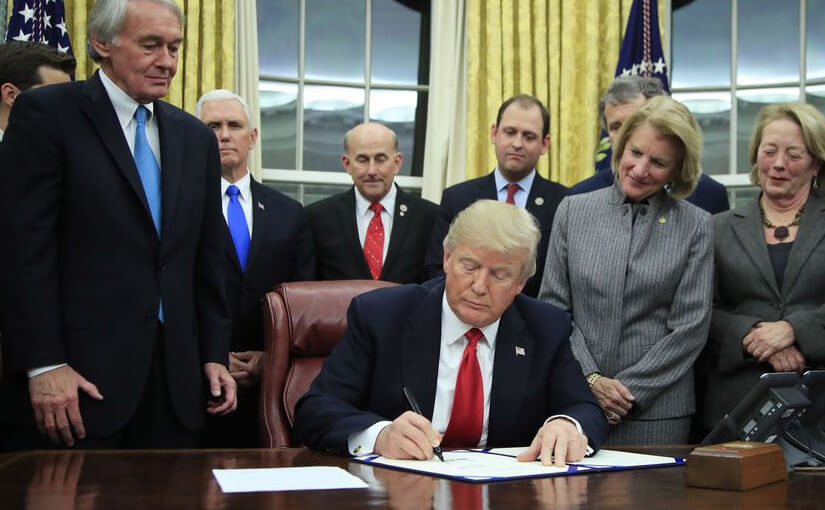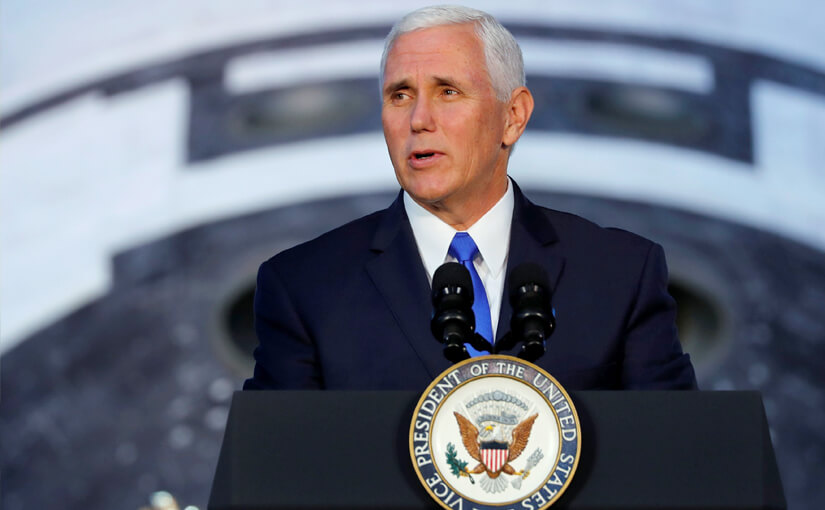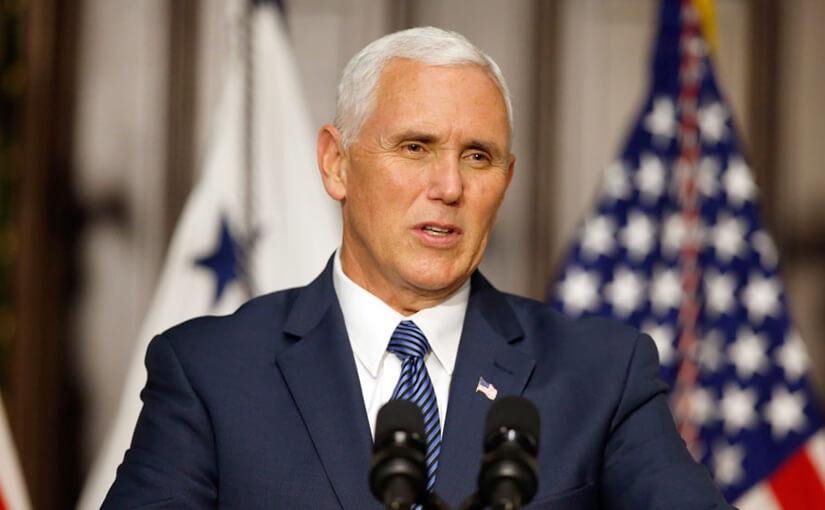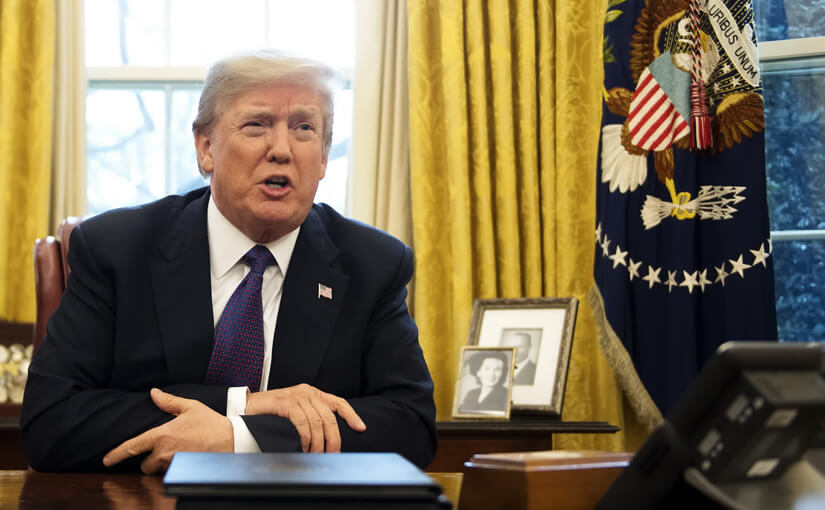- The Supreme Court
The U.S. Supreme Court has complete authority over all federal courts. Its rulings have a significant effect. A Supreme Court ruling can affect the outcome of many cases in the lower courts. The Supreme Court’s interpretations of federal laws and of the Constitution are final. The Supreme Court is limited in its power over the states. It cannot make decisions about state law or state constitutions. The Court can decide that a state law or action conflicts with federal law or with the U.S. Constitution. If this happens, the state law becomes invalid. The Supreme Court case ruling Marbury v. Madison established this power, known as “judicial review.” The Supreme Court also rules on cases about significant social and public policy issues that affect all Americans. The Supreme Court ruled on the court case Brown v. the Board of Education of Topeka, which ended racial segregation in schools.
** As you prepare for U.S. citizenship, Learn About the United States: Quick Civics Lessons will help you study for the civics and English portions of the naturalization interview. There are 100 civics (history and government) questions on the naturalization test. During your naturalization interview, you will be asked up to 10 questions from the list of 100 questions. You must answer correctly six (6) of the 10 questions to pass the civics test.


